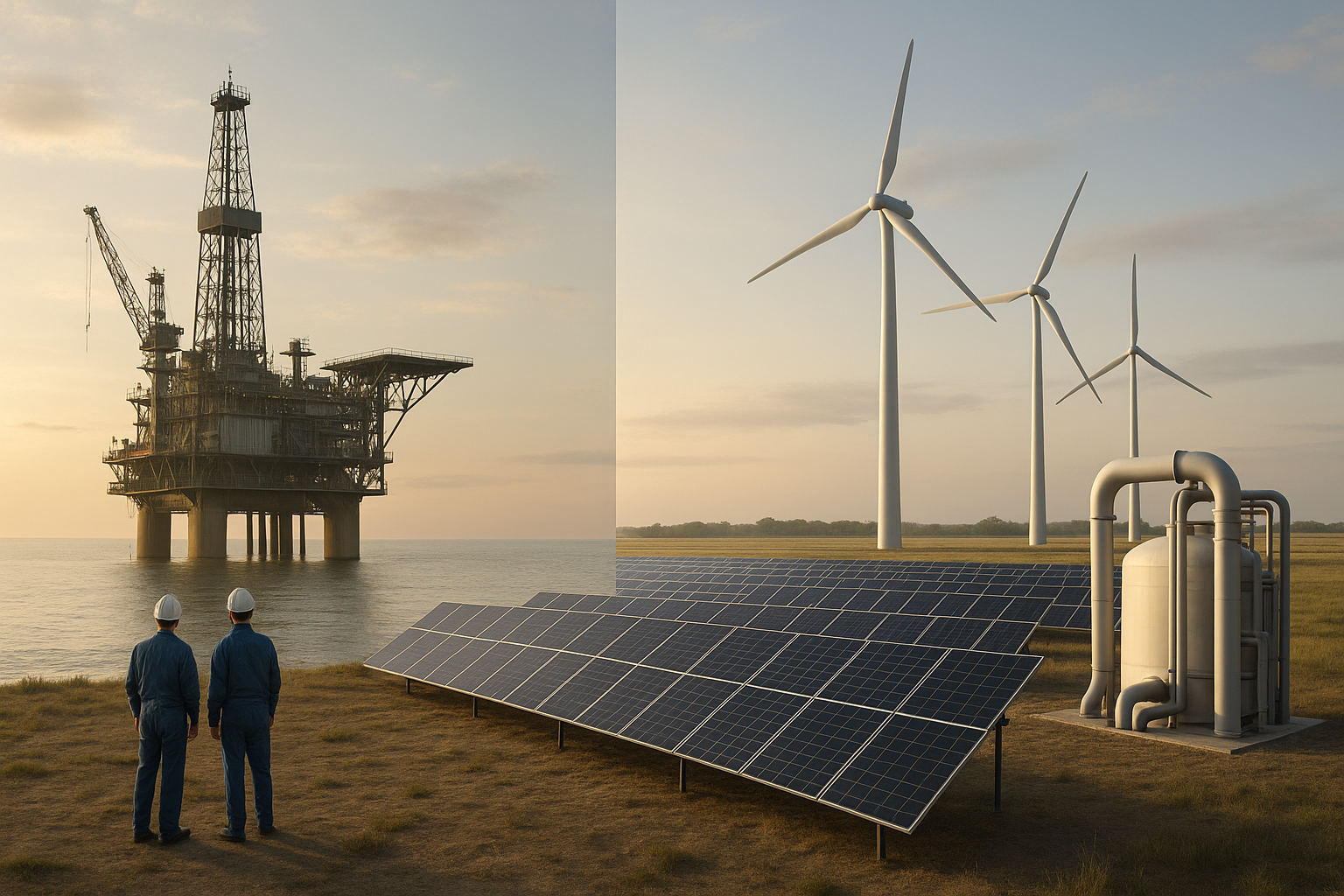The energy sector is at a fascinating inflection point, and few companies embody this transition moment better than Chevron. As one of the world's oil and gas supermajors, Chevron finds itself walking a tightrope – maintaining its traditional hydrocarbon business while making calculated moves toward a lower-carbon future.
Having covered energy markets for over a decade, I've watched Chevron navigate these waters more cautiously than some of its European counterparts – and in many ways, that measured approach is paying off. Their Q3 2023 earnings report showed a healthy $5 billion in net income, demonstrating that despite all the talk of "peak oil demand," traditional energy businesses remain highly profitable.
The Renewable Pivot
Chevron's $10 billion commitment to renewable energy projects by 2030 represents a significant investment – though critics (and there are many) argue it's still a drop in the bucket compared to their overall capital expenditure. From my conversations with Chevron executives, I sense a genuine desire to participate in the energy transition, but with a pragmatism that acknowledges the world's continuing need for oil and gas.
"We're taking a portfolio approach," Chevron's VP of Energy Transition told me at a recent industry conference. "We believe in meeting energy needs reliably and affordably while reducing the carbon intensity of our operations."
This balanced strategy has frustrated climate activists who want to see more aggressive moves away from fossil fuels, but it's resonated with investors who appreciate the steady returns and dividend growth.
Global Complexities
Chevron's operations span dozens of countries, each with its own regulatory environment and climate policies. This global footprint creates both challenges and opportunities. In regions like Europe, stringent emissions regulations push the company toward faster decarbonization. In developing markets, the priority remains delivering affordable energy to growing economies.
I was in Southeast Asia last month reporting on Chevron's operations there, and the contrast with Western markets was striking. Local officials spoke enthusiastically about Chevron's role in energy security and economic development, with much less emphasis on environmental concerns than you'd hear in Paris or Berlin.
This divergence in priorities creates a complex operating environment. As Carlos Ramirez, an energy analyst I frequently consult, puts it: "Chevron isn't just managing an energy transition – they're managing multiple transitions happening at different speeds across different geographies."
Technology Bets
What I find most interesting about Chevron's strategy is their focused investment in technologies that leverage their existing expertise. Rather than making splashy acquisitions in solar or wind (areas where they have limited competitive advantage), they're concentrating on carbon capture and storage, hydrogen, and renewable natural gas.
Their recent partnership with a carbon capture startup (which I can't name due to an embargo agreement) represents the kind of targeted investment that could deliver both environmental benefits and shareholder returns. By focusing on decarbonizing their existing operations first, Chevron is taking a pragmatic approach that acknowledges their core competencies.
Looking Forward
The energy transition will be measured in decades, not years, and Chevron seems positioned to remain a major player throughout this evolution. Their financial strength gives them the flexibility to adapt as technologies mature and policies evolve.
For investors, Chevron offers an interesting proposition – a traditional energy company with the resources to potentially thrive in a lower-carbon future. Their dividend yield (currently around 4%) provides income while the company navigates these changes.
I think the next five years will be crucial for Chevron and its peers. The companies that find the right balance between maintaining profitable legacy businesses while building meaningful positions in emerging energy technologies will be the ones that succeed long-term. Based on their current trajectory, Chevron appears to be on a sustainable path – though the journey will undoubtedly include both setbacks and opportunities along the way.
In this industry, adaptability is ultimately the most valuable resource – and that's something Chevron seems to have in abundance.
